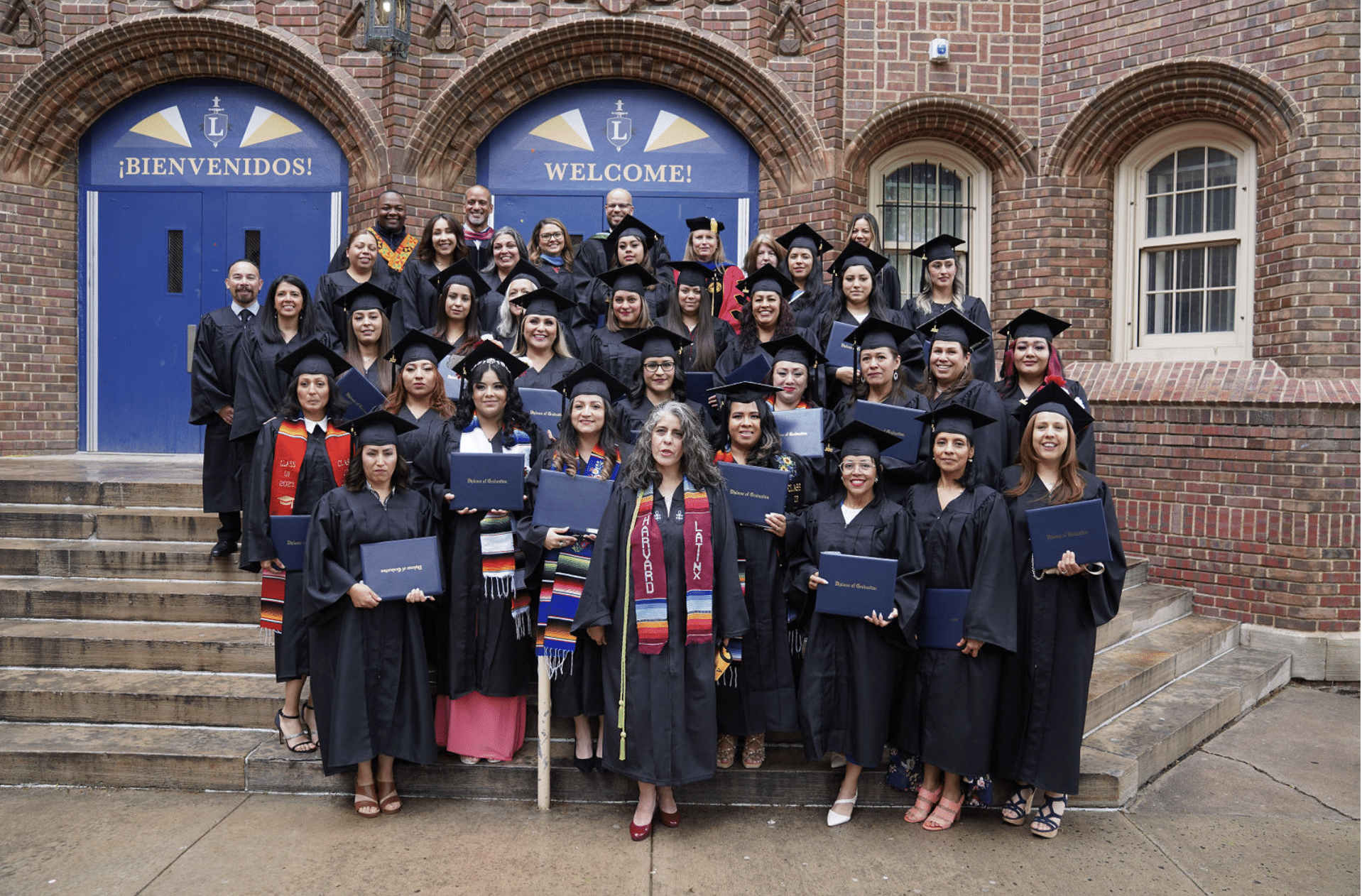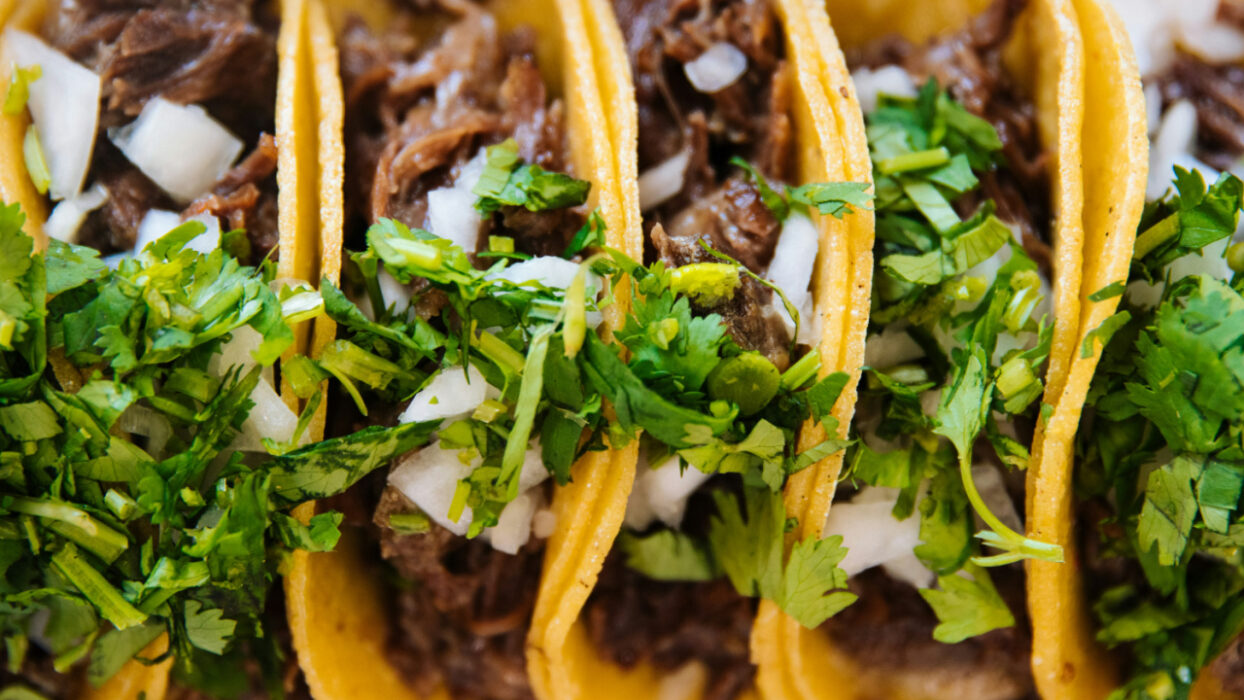
28 Immigrant Latina Moms Make History in Denver As First Graduating Class Made Up of Parents Ages 30–40
As children of immigrants, we are granted glimpses of the hardships our parents endured to give us a better life. It helps that they love to remind us, especially whenever we dare to complain about something, beginning every lecture with, “Mira, cuando yo tenía tu edad…”
Still, it’s very important to understand the scope of their bravery, conviction and sacrifice. Imagine having to uproot your life right now, move to a foreign country where you don’t comprehend the language or culture and do it with children in tow. This is the reality for many immigrant parents in America.
Maria del Rosario is one of them. She crossed the border into the United States at age 18 with her infant child. She had zero knowledge of English and never finished high school. As a single mom, she spent the next 20 years working multiple jobs to provide for her family, taking English classes whenever possible.
It wasn’t until her son asked her for help with 8th-grade math that she realized she couldn’t surrender to the adversity of her circumstances. She needed to finish her schooling in order to help her children. So, she got her GED.
Thankfully, Denver Public Schools’ community hubs were there to help her as well as 27 other single mothers get their GED’s. Needless to say ,these mamás are proving they are the epitome of si se puede.
Community hubs is a program created to help struggling families succeed
These community hubs are made up of six resource centers spread across all of the city’s school districts. They support families in various ways, such as offering child care, food and many classes. These include ESL, financial literacy and citizenship test prep.
Esmeralda de la Oliva, the director of community hubs, shared insights into how the program began and all they’ve accomplished so far.

“Community hubs was launched in November [2022], and since then, some of our hubs have already supported over 1000 families,” she says.
The program’s first graduating class had of 28 women, all mothers, aged 30-40. “It’s the first graduating class in the history of the district [that’s made up of] parents,” de la Oliva offered.
Del Rosario and 27 other hard-working moms passed their GED in Spanish, an option that had not been readily available before. However, they had also been taking ESL classes at the same time. Not only were they adequately equipped for the workforce but also to continue their education. Some of them have already enrolled in college classes — another huge win.
The road to graduation was bumpy for many of the moms
De la Oliva recalls how one mother was in labor during a math exam and could not complete it because she had to go to the hospital to give birth. Not to worry, though; she was very determined. De la Oliva adds, “She had to come back three months later, but she passed!”
Another woman had a sick mother in the hospital for months and couldn’t attend classes, but community hubs worked with her so that she could graduate with her cohort. She did. Even del Rosario had a health scare, which could have dissuaded her from continuing, but it didn’t.
“It’s just story after story,” de la Oliva notes. “There were single moms, taking care of five or six children, working two jobs, who had many other things going on,” she divulged. And still, they persevered, showing us that mamás are real-life superheroes.
Graduation day made it all worth it
The scene was very emotional on graduation day as the audience was filled with the cohort’s families. Kids cheered as they watched their moms walk across the stage with pride, while others wept. De la Oliva recalls, “You saw the moms in tears hugging their daughters. It was such a special moment.”
It was special for de la Oliva, too. She witnessed the positive impact that the program had made in so many lives. She assured the student moms had it in them all along, adding, “The only thing they needed was for somebody to believe in them and offer them resources.” I’m not crying; you are.
De la Oliva called community hubs the most “rewarding project” of her life
Sharing a bit of her personal story, de la Oliva stated, “I see myself in every single family. I’m an immigrant woman, who came to the U.S. with immigrant parents as a child. My mom didn’t have a clue how to navigate the education system. We were an undocumented family with very limited resources.”
She continued, “So, now, [I love] having the opportunity to be a connector and to support families, not only [helping with] ‘How do I enroll my kid in school?’, but also, ‘How do I obtain an education for myself to better the life of my family?'”
De la Oliva believes that the secret to their success is many staff members reflect the community they’re working with. “They speak their language and they understand,” she says. “This has been the most rewarding project of my life.”

De la Oliva explained that the goal of empowering parents was partly so they didn’t have to depend on their children. She began, “Every time I go see my mom, I’m still the interpreter, the advisor, the lawyer— we do it all for them and that’s our lives as immigrant children.”
Of course, that never seemed like an ideal long-term solution. De la Oliva continued, “What we want to do at community hubs is ask, ‘How do we break those barriers and change the direction of these families’ lives?’ So that parents can get educated, can have access to technology, and can learn to navigate their new world on their own.”
When asked about the future of the program, de la Oliva believes that this is just the beginning. “Having 28 moms graduate within six or seven months — and some of these moms had education gaps of 15, 20 years— it’s a huge success. This is not stopping.”




